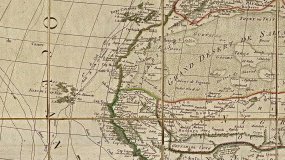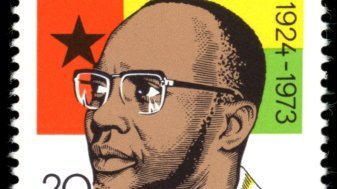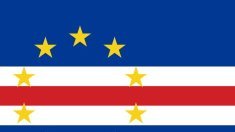History of Cape Verde
The history of the Cape Verde Islands now and then

Settlement and colonial times
The islands were discovered in 1456 by European sailors, the Portuguese crown took over the islands soon after and settled on Santiago in 1461, where they founded Cidade da Ribeira Grande (later known as Cidade Velha). Cape Verde became the first European overseas colony.
Ribeira Grande quickly became a prosperous seaport, slaves from West Africa for the sugarcane and cotton plantations became the most important "commodity”. After the discovery of America, Cidade da Ribeira Grande became the hub for the transatlantic slave trade; Portugal quickly became one of the richest countries of the former world.
However, this wealth decreased dramatically when Spain claimed the Portuguese throne in 1580 and ruled Portugal for the next 60 years.
Increasing attacks by pirates and buccaneers as well as devastating famines further worsened the situation. Only at the end of the 18th century, with the expansion of the trade of Cape Verdean goods (textiles, coffee, salt, etc.) did the country enter another period of growth and prosperity.
However, during the Napoleonic wars of the early 19th century, the colony was again neglected; Brazil became increasingly important for Portugal.
Due to the shifting influence amongst the European powers, England started to play an increasingly important role and Portugal became dependent on England.
Only in 1878 was the slave trade finally terminated.

Way to independence
In the beginning of the 19th century, the port of Mindelo in São Vicente developed into one of the leading ports between the continents.
However, this important status was suddenly lost after the opening of the Suez Canal in 1869, when the circumnavigation of the continent for specific trade routes became redundant.
Dryness, periods of drought, epidemics, volcanic eruptions and difficult economic conditions resulted in continuous waves of emigration over the centuries. Today, twice as many Cape Verdeans live abroad (US, Europe, Brazil) than on the islands themselves. Due to the continued economic and social abuse, the population revolted in the 1960s against the colonial system. Founded in 1956, the PAIGCV, the African Party for the independence of Guinea-Bissau and Cape Verde, advocated liberation from Portuguese colonialism.
Cape Verdean intellectuals and freedom fighters like Amilcar Cabral fought for their anti-fascist and anti-colonial goals.

Current situation
After the collapse of the dictatorship in Portugal in 1974 (carnation revolution), which brought independency for Guinea-Bissau, the PAIGCV (today's PAICV) became more public.
Finally, due to omnipresent pressure, the Cape Verde Islands finally became an independent country on 5th of July 1975. From 1975 to 1990, a single party ruled by PAICV suppressed popular dissent and sometimes used political imprisonment and torture. Nevertheless, assistance continued from the wealthy states of the "Western World" - due to Cabo Verdes` neutral foreign policy.
However, in 1990, under mounting pressure from the US and other donors, the party was forced to agree to democratize the country. The MPD (Movimento para Democracia) was founded, which came into power in the first official election in January 1991 and ruled for ten years. Between the newly re-organized PAICV and the MPD they won alternatively the elections for the next years.
Government handover has been undisputed and peaceful so far. Although there are other parties, Cape Verde can be described as a two-party system. Socio-political stability, security and social peace characterize the country today. Since 1975, the government and population have achieved remarkable development in almost all areas of daily life (health, education, etc).
Nowadays, Cape Verde is one of the most stable and prosperous countries in Africa.


